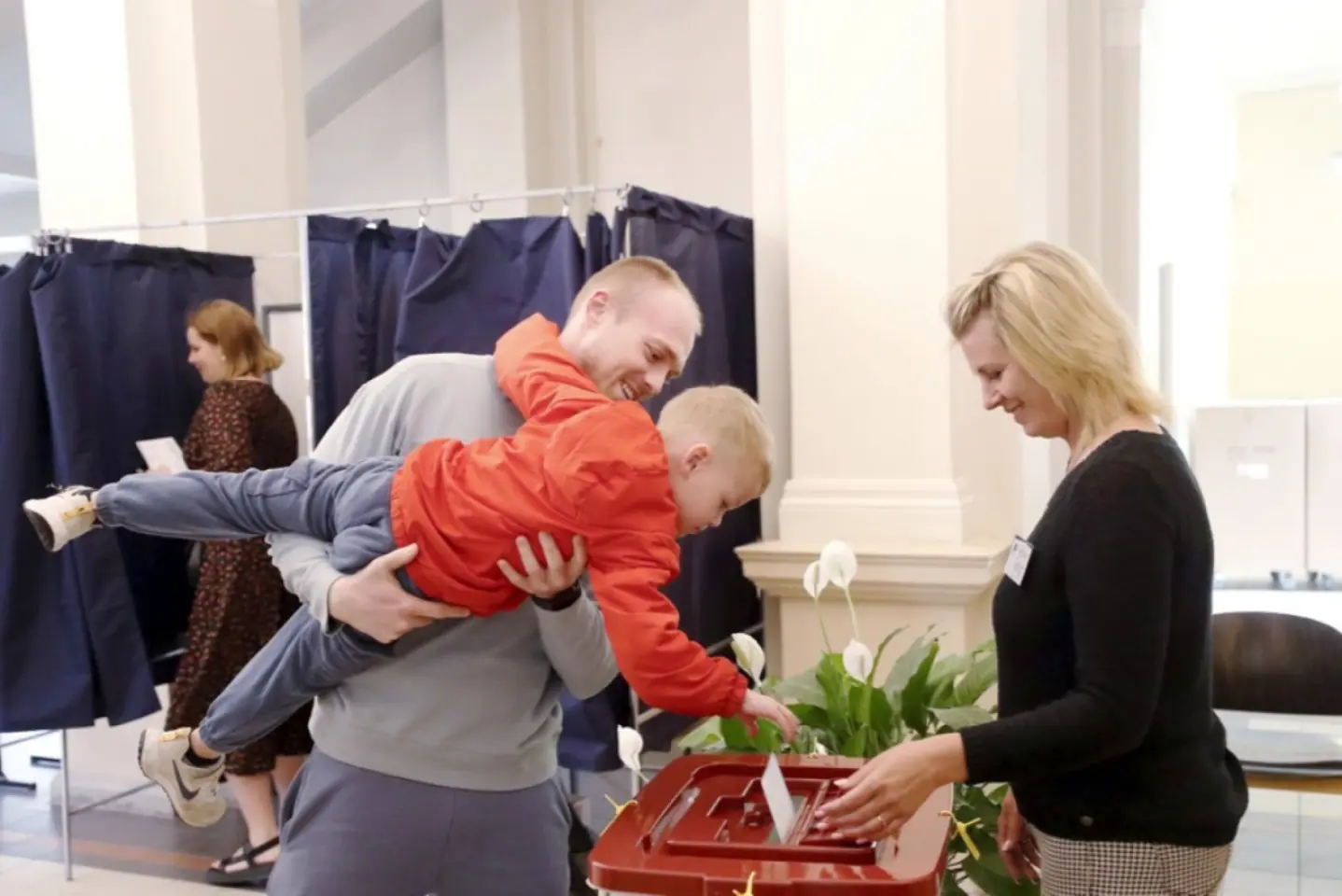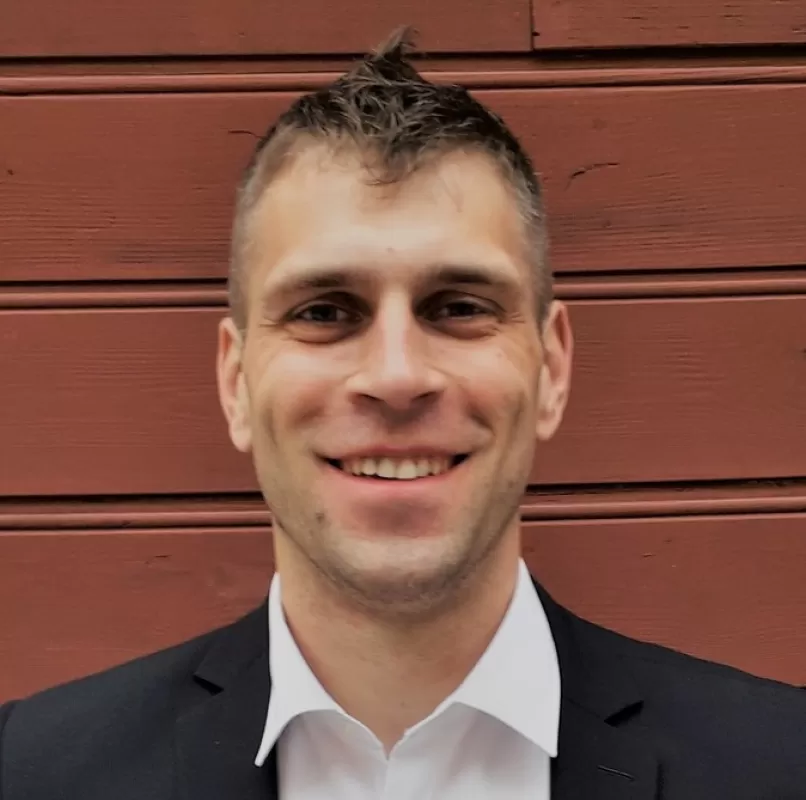
Politicians with pro-Russian – or at least ambiguous stands – and a strongman profile are frontrunners for the coming elections in Latvia’s three main cities. Will this trend go national?
The return of controversial, pro-Russian politicians
Ever since the end of February 2014, when Russia’s invasion of Ukraine began, and especially since February 24, 2022, when the war escalated into a full-scale invasion, some politicians avoided a clear answer to a question that many see as merely rhetorical: who caused the war? Three of those politicians are Latvian, quite known in their country, and frontrunners in the coming local elections (June 7) in three of Latvia’s biggest cities.
Former Transport Minister, Ainārs Šlesers, who has been a politician for over 25 years, stands a good chance of becoming the mayor of the capital Riga. The current mayor of Latvia’s second largest city, Daugavpils, Andrejs Elksniņš, has an excellent chance of retaining his position for the next four years. Finally, Aleksandrs Bartaševičs is poised to regain the mayor’s seat in Rēzekne, another large city a few dozen kilometers from Russia. In addition to their authority and popularity, especially at the local level, these politicians are also united by their ambiguous stance regarding Russia and its invasion of Ukraine.
For years, Šlesers has made controversial comments regarding Russia. For example, in 2014, he criticized Latvia for supporting sanctions against Moscow, saying that Russia can do without Latvia, but Latvia cannot do without Russia. In 2014, there was also a “National Reconciliation” campaign, whose face was Šlesers, in which Latvian residents, frightened by the fate of Ukraine, were called upon to make peace in the society. The campaign was funded by a company owned by a friend of Russian President Vladimir Putin. In 2024, Šlesers told Latvian Radio 4, a Russian-language radio station, that after the war, Latvian ports would need cooperation with Russia and Belarus. At the same time, he calls on Latvian-language media to allow US President Donald Trump to work and support his policy towards Ukraine. He and his party would be ready to support improving the Latvian defence budget.
Elksniņš’ inability to answer the question of who owns the Russian-annexed Ukrainian peninsula Crimea, has become an internet meme. On another occasion, he said that Crimea belongs to those who voted for its annexation to Russia, and even claimed that Belarus – ruled since its independence by strongman Aleksandr Lukashenko, labeled years ago “Europe’s last dictator” – is more democratic than Latvia. In 2022, he, along with other politicians, left the “Harmony” party when its most visible leaders, Nils Ušakovs and Jānis Urbanovičs, condemned Russia’s invasion of Ukraine and subsequently lost the parliamentary elections without winning a single mandate.
In 2022, Bartaševičs criticized by and later expelled from his own party, after he called on neutrality towards Russia and refused to call the invasion of Ukraine a war. At the end of 2023, Bartaševičs said that he supports both NATO and Ukraine. He was unable to explain his change of opinion. There is also suspected corruption – when Bartaševičs was mayor, procurements and city tenders of 37.9 million euros were won by his family and brother’s companies.
Last, but not least, also in 2023, Rēzekne ran into such severe financial problems that the Ministry of Smart Administration and Regional Development fired Bartaševičs. Now the city is led by the Ministry’s appointed administration. But after the elections, the city will be run by the elected leaders.
Is Riga going to turn MAGA?
Called an oligarch and for many years one of the most influential people in Latvia, Šlesers entered politics in 1998, when he was one of the founders of the “New Party”. After a while, he became the Minister of Transport. From time to time, various corruption scandals were associated with his name. The expression “Šlesera’s octopus”, which referred to the placement of officials and other people loyal to him in important positions, became folklore. Due to his intransigence, he earned the nickname “Bulldozer”. In the 2010s, he partially disappeared from politics. However, he later returned with a new party, “Latvia First”, an obvious inspiration from Donald Trump’s slogan “America first”. Šlesers often refers to Trump as an authority. What’s more, in the 2000s, Trump, Šlesers and other businessmen planned to build a casino in Riga, turning part of the city into Las Vegas. The project was never implemented.
Currently, Šlesers, who has become a favorite for the mayor of Riga, is a member of parliament. “Latvia first” is the most popular party, according to the polls. “Mr. Šlesers is very skillful in balancing on both sides. With the Russian-speaking audience, he does not talk about political topics. But with the Latvians, he explains that before the invasion, he had one position, but now another, without formulating what he thinks” political scientist Lelde Metla-Rozentāle told Veridica. “There is an electorate for which the position against the war is decisive on both the Latvian and Russian sides. And in the middle is the “Latvia first”, which says that the most important thing is the economy”, she adds, explaining that Šlesers is basically looking for support among an increasing segment of the population – those that are getting tired of the war.
Geopolitics loom large over the elections, despite the politicians’ reluctance to talk about them
Andrejs Elksniņš is also an experienced politician, having once been a member of the Saeima as a representative of “Harmony”. Since 2021, he has been the mayor of Daugavpils. This city is located about 40 kilometers from Belarus, and the majority of the population is Russian. A bit more than 10% are Latvians and Poles. Thus, the Russian language dominates the city’s everyday life. Even though the official language of the country is Latvian, Elksniņš also is using Russian language as well in his social media posts.
Inna Plavoka, editor-in-chief of the Daugavpils internet media outlet “Chayka”, told Veridica that most candidates in the upcoming local elections in the town have focused on economic issues. They refrained from talking about geopolitics. Plavoka admits that she does not know what politicians really think. Elksniņš once said that politicians should speak what voters want, and – Plavoka adds – some of them want to hear a pro-Kremlin position. She points out that, in spite of the politicians unwillingness to engage in geopolitics, they still loom large over the elections. “This is a sensitive question. I would say, the same level as Russian language status in Latvia,” explains Plavoka.
Elksniņš’s popularity is also fueled by his ability to play with the public and the widespread belief among voters that leaders know everything better. The journalist predicts that Elksniņš will hold on to his office. Moreover, some parties or politicians in other parties are so-called satellites who represent Elksniņš’s interests and positions, so he stands a good chance to achieve control of the local council. Plavoka points out that the mayor recently said that a one party system would be good for municipality, which suggests that he’d like to make a strong vertical of power.
Are strongmen about to take over Latvia’s politics?
People are currently responding to the calls of charismatic, strong leaders. Šlesers, Elksniņš, and Bartaševičs sell themselves as just that. “They believe to Šlesers, because he is a good leader. Elksniņš? The same … Nobody thinks about Daugavpils as I do. But I will,” Metla-Rozentāle characterizes Elksniņš’ position.
The next parliamentary elections are scheduled in early October, 2026. The university’s researcher admits that the popularity of such politicians shows the tendency of what kind of politics is in high demand in Latvia. Thus, “Latvia First” ambitions to get power on a national scale are justified. Prospectively, it continues to develop its popularity and attract new supporters.


